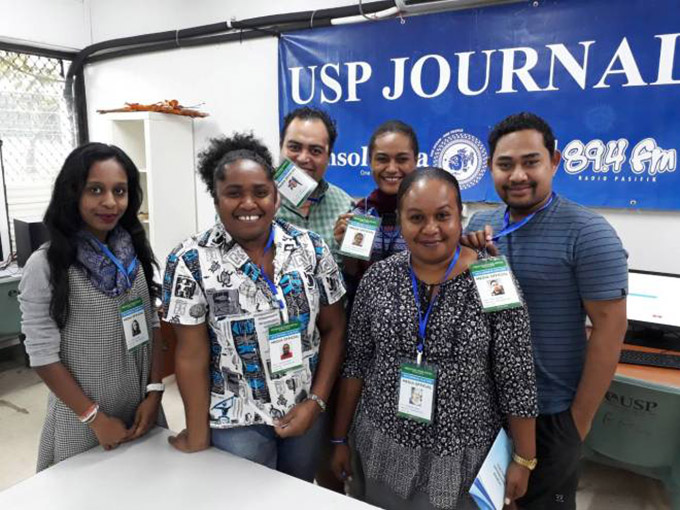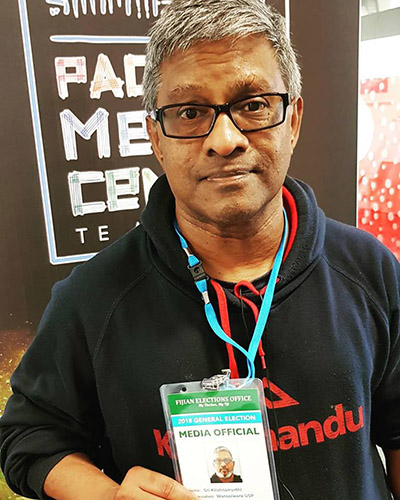
By Kaelyn Dekarube in Suva
As part of their coverage of the 2018 Fiji general election this month, University of the South Pacific student journalists have participated in a recent three-day virtual seminar on election reporting organised by the US Embassy in Suva.
The virtual seminars were facilitated by journalism professor Gary Kebbel, who teaches global news, mobile and social media at the University of Nebraska-Lincoln, and is a member of the US State Department speaker programme on reporting on elections.
Final-year journalism student Mereoni Mili said the seminars were timely and relevant, with Fiji heading to the polls next week on November 14.
“As a student reporter covering elections this year for the first time, I found the workshop very useful and helpful. It broadened my understanding of the basic guidelines for reporting election,” she said.
“The seminars also provided an insight into the kinds of issues we could report on for our election coverage. One of the most important things I learnt was the role of the media to provide equal and unbiased coverage for all political parties.”
Another student, Mitieli Baleiwai, said the experience provided an opportunity to learn different reporting styles.
“Professor Kebbel showed us different approaches to covering election stories and how we could use these approaches to help people vote for the best candidate that would represent their interest,” he said.
Basic guidelines
Professor Kebbel focused on basic guidelines for reporting on elections, responsible election coverage and fact-checking candidate claims during the hour-long seminars on September 12, 19 and 26.
The coordinator of USP Journalism, Dr Shailendra Singh, who attended a workshop with the students, said the exercise was integral to preparations for the election coverage.
He said the seminar supplemented USP Journalism’s in-house workshops to prepare students for the event.
Among other things, the in-house workshops covered Fiji’s electoral system, the country’s political landscape, the challenges faced providing fair and balanced coverage within available time and resources, story selection and the overall responsibility of the journalist to the public.
An important element of the workshop was the safety and security of journalists.
Dr Singh added the election was too good a learning opportunity to be missed in terms of applying theoretical knowledge with professional practice and experiencing the outcome.
“The idea of covering the elections is part of authentic learning in which students perform real-world tasks to bring out the practical and meaningful application of the theories and concepts learnt in the classroom,” he said.
Normative journalism
“Students come to terms with both possibilities and limitations of normative journalism theories, that is the difference between how journalism ought to be practised in an ideal situation and how it is actually practised, based on the realities and constraints in the field.”
USP Journalism students will be covering the 2018 general election under the supervision of Dr Singh and Geraldine Panapasa, supervising editor-in-chief of the campus-based newspaper, Wansolwara.

The objective of the election coverage is to give students practical experience about an important democratic process while also becoming acquainted with key issues affecting the country as well as understanding the election process.
The Wansolwara elections team, comprising three staff members and 10 final-year journalism students, will cover major areas in the Western Division from Sigatoka to Korovou as well as major parts of the Southern and Central divisions.
AUT collaboration
Wansolwara will publish a special edition on the election, focusing on the human interest elements as well as a content analysis of people’s expectations of government.
A postgraduate student from Auckland University of Technology, Sri Krishnamurthi, an experienced news agency journalist, will also be attached to the Wansolwara team as a collaboration between the two universities.
He will be reporting for Wansolwara and the Pacific Media Centre’s Asia Pacific Report.
Kaelyn Dekarube (Nauru) is a final-year journalism student at the University of the South Pacific in Suva.











































